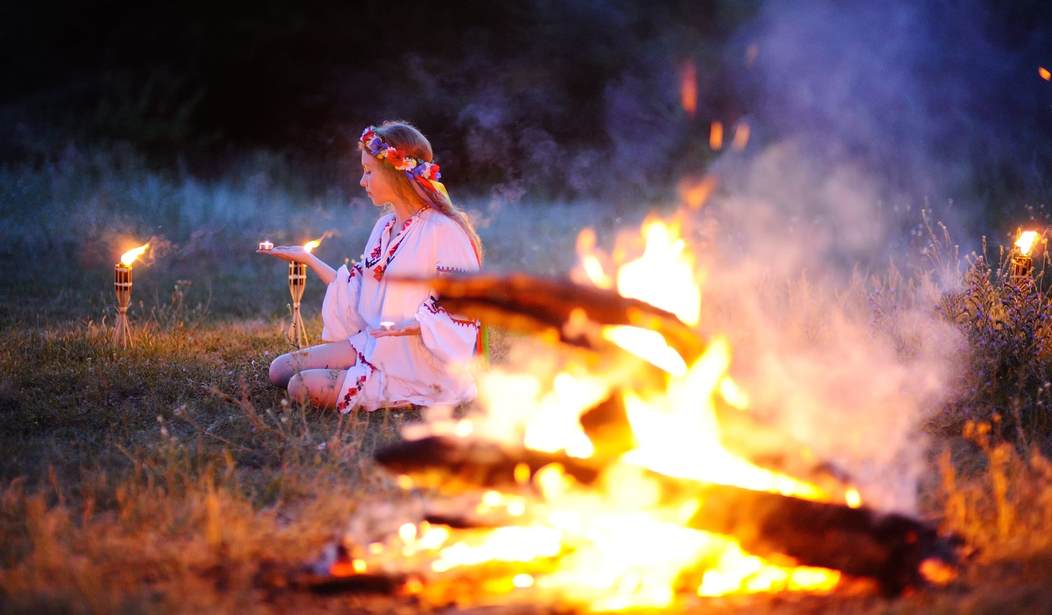Last month, the Department of Defense (DOD) announced that it will officially recognize a large host of small religions, including Humanism, Heathen, and even the Church of the Spiral Tree.
“Beyond Humanism, the new listing is a win for diversity in general,” Jason Torpy, president of the Military Association of Atheists and Freethinkers, said in a statement. “There is also reason to celebrate other additions. For example, Heathen, Asatru, and Troth designations are long-awaited and well-deserved among the Earth-Centered Community.”
The list was released in the context of a letter providing “Faith and Belief Codes” for 221 different religions, expanding the official list beyond the earlier 100. Besides adding heathens and humanists, the list also includes eight more Protestant groups, and expands “Jewish” to encompass Orthodox, Conservative, and Reform Judaism.
Torpy, a 1998 West Point alum, emphasized that the new memo provides new authority for alternative faith groups. “This new directive has paved the way for good chaplains to do the right thing for Humanists and other nontheists in the military,” he wrote (emphasis his). “Having Humanist on the list of options will help chaplains to see and provide for the Humanist needs that have always been there in units throughout the military.”
He announced that MAAF would pursue “chaplain outreach” to help train military chaplains in humanist beliefs and needs. But he also said there are further necessary reforms, including “a statement from the chaplains in the services saying we encourage humanists to come to our chapels to get humanist materials and referrals.”
Torpy explained that the new list implies a commitment to “abandon the outdated concept of a god-or-bust chaplaincy,” since those who do not believe in God still have spiritual needs (emphasis his). This is an interesting position for an atheist, since it seems to imply that there is a world beyond the material realm.
Josh Heath, co-director of the Open Halls Project, an organization “set up to connect military Heathens with civilian and military heathens throughout the world,” explained that the new list will give tangible benefits to servicemen and women. The classification will make it easier for heathens to get their holidays off, travel to off-base religious services, or keep special religious items in the barracks.
“If you run into any miscommunication about your religious needs you can say this is my official religious preference and be accommodated,” Heath told Religion News Service. He added that he hopes the new list will “make it easier for military heathens to find each other and form on-base communities.”
Yes, “military heathens” is now a descriptor of an officially recognized faith.
The newly expanded list will also enable the military to create more accurate statistics about servicemen. According to MAAF, more than 22 percent of service personnel identify as “no religious preference,” and just over 1 percent identify as “atheist” or “agnostic.”
In 2010, the Defense Equal Opportunity Management Institute estimated that humanists make up 3.6 percent of the U.S. military, while pagans made up 1.18 percent — a greater figure than Muslims at 0.45 percent.
Roger Drinnon, writing in Reporter, the official newspaper of the Lutheran Church-Missouri Synod, argued that the military struggles with a “heavily secularized military culture, stemming from ongoing atheist activism and LGBT advocacy.” This has created “an environment where restrictions and even punitive actions reportedly are being imposed on chaplains, commanders and lower ranks who seek to serve without compromising their religious faith.”
Drinnon listed two high-profile cases advocated by First Liberty Institute. In one case, Sterling v. United States, U.S. Marine Lance Cpl. Monifa Sterling was court-martialed for refusing to remove a Bible-themed passage from her workspace. The message, loosely based on Isaiah 54:17, read, “No weapons formed against me shall prosper.” She was given a bad conduct discharge.
Besides any animus against traditional faiths that the new list might create, the change does represent a problem when it comes to the definition of religion in the military. To what extent can there be a religion without God? In this sense, religion becomes an ultimate view of reality — inseparable from totalizing ideologies such as communism.
The “concept of a god-or-bust chaplaincy” would seem like common sense. Is not a chaplain merely the military equivalent of a priest, one who acts as a mediator between God and man? If there is no God, why does a humanist need a chaplain?
Late last year, President Obama signed a bill extending religious freedom to atheists. This makes sense, because the right to live according to one’s conscience is not limited to religious people. It further seems to admit that the belief that there is no God is a religious belief, and that atheists have every right to act on it.
Truly fascinating, however, is seeing heathens and humanists emphasize spiritual needs. Christians (and Jews and Muslims) would of course say these people have spiritual needs — driven by a fundamental spiritual need to commune with God. But they supposedly do not believe in God.
Are these atheists conceding a world beyond this one? If so, on what grounds do they deny God’s existence? Can someone be intellectually honest in denying God because science supposedly disproves the supernatural, and in accepting supernatural spirit energies in the Earth?
Despite this huge victory for nontheists in the military, atheist groups like MAAF will continue their push for official help. Like the LGBT movement, these groups are driven by a culture war desire for equality of outcome, not just equal treatment under the law. The Military Religious Freedom Foundation’s attack on an Air Force Academy coach for tweeting Bible verses proves this point.
Don’t expect this issue to go away anytime soon.









Join the conversation as a VIP Member